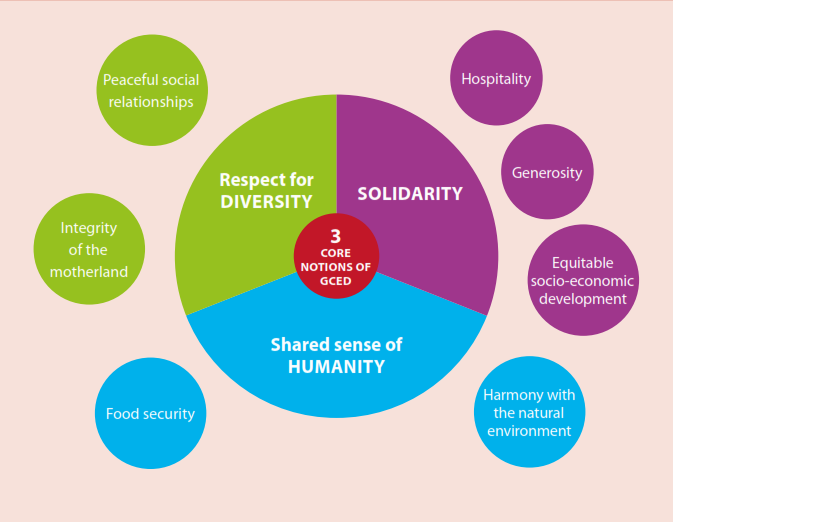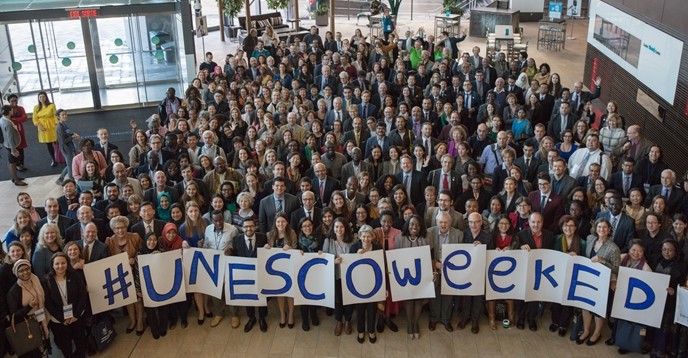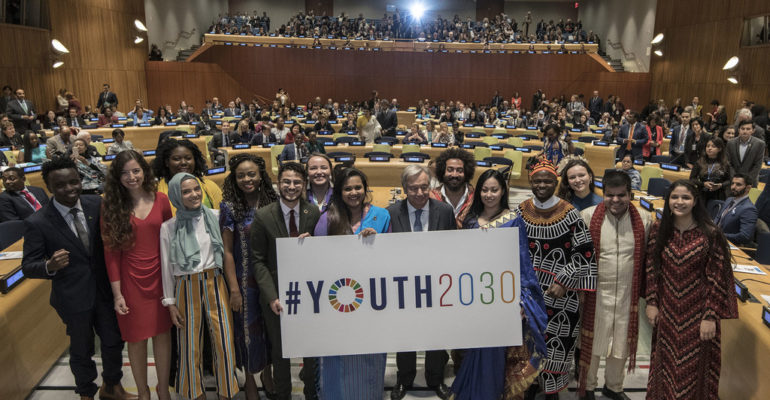Blog by Evelyne Para, SI UN Representative at the United Nations Educational, Scientific and Cultural Organisation (UNESCO).
“As the international community experiences an unprecedented health crisis, and contemporary challenges threatening the rule of law are a source of growing concern for many societies around the world, we realise now that the challenges we face are wholly interconnected. We all feel linked as citizens belonging to the same large community, to a common humanity called upon to define actions in order to promote peace, better living together, well-being, prosperity and sustainable development.
Global Citizenship Education (GCED) is UNESCO’s response to these challenges. GCED is a form of civic learning, which aims to impart the knowledge, skills, values and attitudes necessary to help promoting tolerance, equity and peace in the world. This feeling of global citizenship emphasises political, economic, social, cultural interdependence, as well as the interconnection between the local, the national and the global. UNESCO’s work in this area is grounded in working towards the 2030 Agenda for Sustainable Development, most notably Sustainable Development Goal 4 (SDG4), Target 4.7.

The aims of GCED are for active learners of all ages to:
- know their identity and their position within a network of multiple relationships (family, friends, school, local community, country), which is the basis for understanding the global dimension of citizenship;
- understand the structures of global, national and local governance, the rights, duties and responsibilities of each citizen;
- recognise, respect and appreciate differences and multiple identities, to live in harmony with others;
- pay attention to others, especially the most vulnerable, and demonstrate empathy and compassion;
- acquire values of equity and social justice, as well as skills to critically analyse inequalities linked to gender, socio-economic situation, culture, religion and age;
- acquire an acute awareness, a rigorous moral sense and critical thinking skills that can be constructively transposed into their daily lives;
- acquire the capacity to make decisions, to use the methods and tools of problem solving, mediation, negotiation, collaboration, dialogue and peace building;
- familiarise themselves with ethical issues: biodiversity, climate change, consumerism, fair trade, migration, poverty and wealth, sustainable development, terrorism, war, etc.;
- reflect on the general impact of their choices and decisions, engage in civic action, social entrepreneurship, active participation, taking personal and social responsibilities.
GCED has a lifelong learning perspective, beginning in early childhood and continuing through each level of education into adulthood. It requires formal and informal approaches, interventions covering both educational programs and extracurricular activities, conventional and unconventional methods to encourage wide participation of learners. Learning topics should be practical, appropriate to the age of the learners, as well as to diverse geographic and socio-cultural contexts.
In recent years, two Forums on Global Citizenship Learning have been organised by UNESCO. Research, consultations and experimentations have been carried out on the ground by education actors in different regions of the world.
It emerges now that in order to achieve the targeted objectives, GCED must adopt a multidimensional approach based on three areas of learning:
>>> Cognitive learning: Getting to know, understand and critically judge global, regional, national and local issues, as well as the interconnectedness and interdependence between different countries and peoples.
>>> Socio-emotional learning: Having a feeling of belonging to a common humanity, of sharing values and responsibilities, empathy, solidarity and respect for differences and diversity.
>>> Behavioural learning: Acting effectively and responsibly locally, nationally and globally to foster world peace and sustainability.

Photo courtesy of UNESCO, from the Forum on Global Citizenship Learning.
Education has the power to make a difference. It helps shape the values of future generations. We all know that adolescence is a crucial developmental period, during which identity, belonging and socialisation – especially among peers – are particularly important. Schools therefore play a major role in the socialisation of young people, their development, the construction of their ideas and their conception of justice, democracy and human rights. Teachers are usually the main actor in this work and have a decisive influence, along with families, on the attitudes and behaviours of young people.
GCED is a major subject in our societies today. It must help ensure that future generations are made up not only of critically-minded citizens, but also of enlightened and autonomous actors, prepared to build peaceful, just and inclusive societies.”


Very informative and relevant, exactly what I was searching for. Thanks
Thanks for great information.